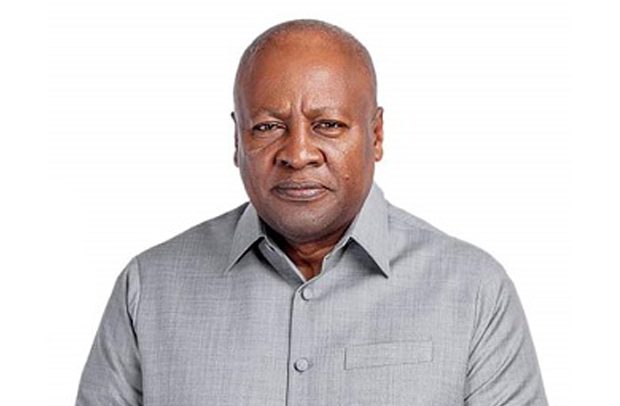John Mahama
Elections the world over are underpinned by policy proposals for the electorate’s consideration before ballots are cast. In Ghana, one key ingredient for a political party to succeed at the polls is having clear, concise, and realistic policy proposals. Out of the policy proposals captured in various manifestos, one or two should stand out or resonate with the masses.
The New Patriotic Party, in the run-up to the 2016 general elections, presented policy proposals embraced by the electorate. These included Free SHS, One District One Factory, One Village One Dam, One Million Dollars per Constituency, One Ambulance per Constituency, etc. These policy ideas resonated with the populace because they were seen as relevant, realistic, and life-changing.
The past seven and a half years have proven that the Akufo-Addo/Bawumia administration has been largely successful in implementing the above-mentioned policies. The Government has fully implemented some of these policies, while others are at various stages of completion or implementation.
The NDC’s campaign during the 2016 electioneering period had no tangible policy proposals except for the usual sloganeering the party is known for. It was either ‘Edey Bee Keke’ or ‘No Abaabase’. Ghanaians could not point to a policy proposition they could associate themselves with, which worked against the NDC.
With the benefit of hindsight, the opposition National Democratic Congress has seen the need to drive their campaign for a comeback for Mahama with a mantra that they believe can capture the hearts and minds of the Ghanaian electorate. This has given birth to their 24-hour economic policy mantra.
What is obvious is that while they are trying everything humanly possible to sell this 24-hour economic idea to Ghanaians, it is failing to receive the needed acceptability. The reasons for this are not far-fetched. First, the 24-hour idea has no clear-cut outline. Moreover, the originator, John Mahama, has not been able to explain it to Ghanaians. None of the leaders and communicators of the NDC has been able to explain the 24-hour economy to Ghanaians, making it difficult to work around such an idea.
This explains why the Vice President of the policy think tank, Imani, Bright Simons, has described the 24-hour economic proposal as more aspirational than a specific policy proposal.
Responding to tweets and questions from a cross-section of Twitter users about why CSO folks are not probing NDC’s 24-hour economic claims just like they did with the New Patriotic Party’s Free SHS policy proposal, Bright Simons indicated that what the NDC is proposing cannot be considered a tangible policy statement.
“More critical, at least for me, is that ’24-hour economy’ sounds more like an aspirational ‘policy VISION’ than a specific policy itself. Like the Kufuor-era ‘Golden Age of Business’ or ‘War on Indiscipline;’ Hard to probe those,’’ he tweeted.
The presidential candidate of the opposition NDC, John Dramani Mahama, has described it as a game-changer. Just like the NPP relied on the policy proposals of Free SHS, 1D1F, 1 Village 1 Dam, etc., Mahama’s main driving force is the 24-hour mantra.
What has, however, become synonymous with the 24-hour economic policy is its lack of clarity and what it entails, as already established. This has been manifested in so many ways by key members of the NDC articulating some weird ideas to represent the proposal.
The National Chairman of the party, Johnson Asiedu Nketiah, understands the 24-hour economy as giving electricity to foundry workers and welders at half prices to work at night.
Samuel Okudzeto-Ablakwa explained it as the cancellation of ex-gratia and the building of airports in all regional capitals. Felix Kwakye-Ofosu is of the view that people selling Waakye at night constitutes a 24-hour economy.
Prof. Grace Ayensu Danquah referred Ghanaians to what happens abroad and said that whoever does not understand the policy lacks common sense.
Nana Oye Bampoe-Addo defined the 24-hour economy as weeding with torchlights at night. Dr. William Atta Owusu said that the 24-hour economy would involve rearing lions, tigers, and other wild animals.
The policy proposal appears to have no substantial ingredients for which the electorate can digest and make an informed decision, considering the several incoherent and uncoordinated definitions provided by the NDC members.
This lack of clarity on what exactly the 24-hour economy represents has led Bright Simons to describe it as empty since it fails to define what it constitutes. Several other Ghanaians have asked what the 24-hour economy is all about, but answers are not forthcoming.
There is only one conclusion one could come to, and that is, the 24-hour economy is a mere mantra introduced to catch the attention of the Ghanaian electorate as the 2024 elections draw nearer. It is empty as it lacks substance. It is more of a slogan than a workable policy. By P.K.Sarpong.


